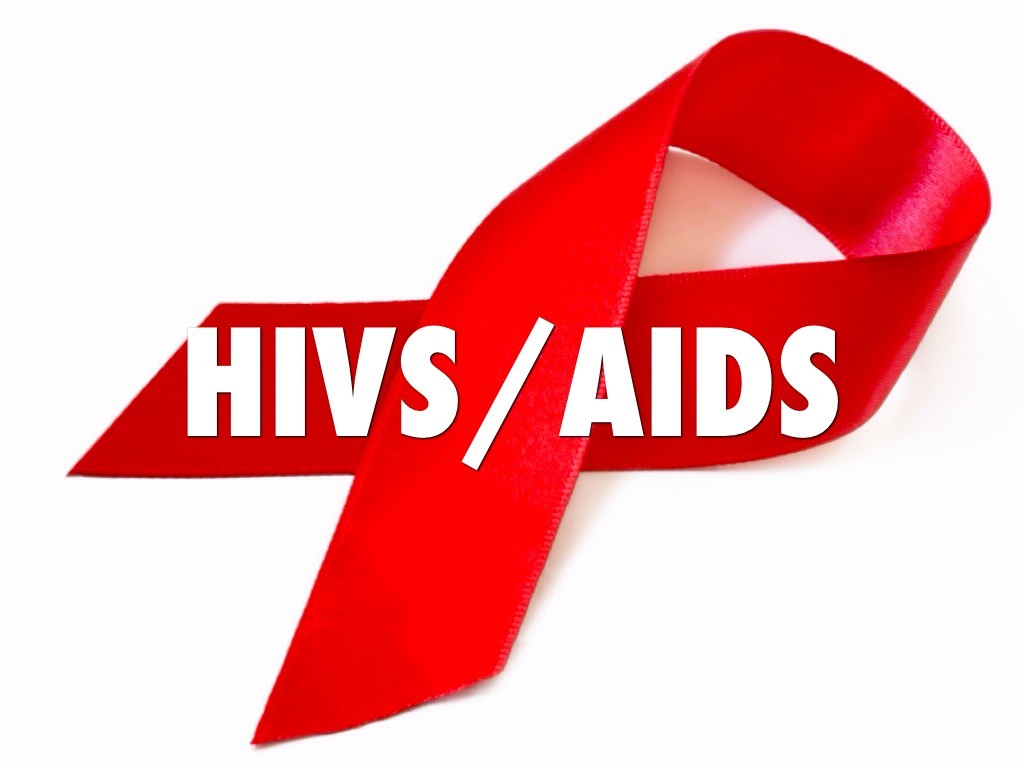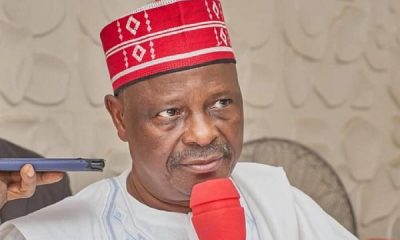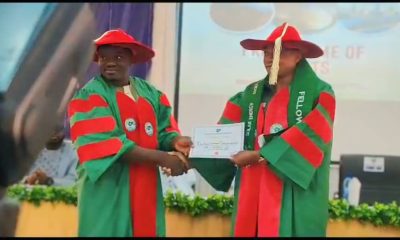Health
Kwankwaso Commissions Drug Rehabilitation, Depression Centre in Kano

A former governor of Kano State, Sen. Rabi’u Kwankwaso, has commissioned a private drug rehabilitation and depression management centre in Kano to complement efforts in the fight against drug abuse.
The Amana Sanatorium Private Rehabilitation Clinic, Depression Management and Reformatory Centre offers outpatient, and inpatient rehabilitation with various levels of intensity based on the period of therapy.
Speaking at the commissioning of the centre yesterday, Kwankwaso said that people with drug-related problems would be treated at the centre to enable them to bounce back to normal life.
“People with drug-related problems require proper care, hence the need for the foundation to establish the centre,” he said.
He said that the centre had the capacity to manage 144 patients at a time at a subsidised rate.
The centre is also equipped with outdoor sports facilities to help grow the mental health of inmates, while it also offers them the opportunity to learn skilled jobs in modern workshops at the centre.
He said that care givers at the centre were psychiatric doctors, psychiatrist nurses, clinical psychologists and sociologists, among others.
Kwankwaso called on the civil society organisations and non- governmental organisations to partner with the centre in rendering the much needed services.
He noted that the edifice was constructed by Kwankwasiyya Development Foundation.
The former governor also said that the foundation had constructed schools in Rano Local Government and as well constructed College of Nursing Sciences at Kwankwaso.
He listed other achievements of the foundation as the establishment of 60-bed capacity clinic in Kano and sponsorship of 370 first class graduates for Masters’ abroad.
The Chief Imam of Triumph Mosque, Kano, Malam Lawal Abubakar, commended Kwankwaso for the establishment of the centre in the state.
Abubakar said that the centre came at a time when all hands were required to contribute in the fight against drug abuse in the country.
He urged politicians to shun politics of hatred and desist from all forms of drug abuse.
Abubakar prayed to the Almighty Allah to give the country good leaders at the forthcoming 2023 elections. (NAN)
Health
Expert Advocates For Elimination of Mother-to-Child Transmission of HIV Through HIV Self Testing.

From Attah Ede, Makurdi
Eliminating mother-to-child transmission of HIV in Nigeria is an achievable goal, but it requires innovative approaches that can address the unique barriers faced by women in underserved communities.
An expert on health related matters, Dr Godwin Emmanuel stated while interacting with newsmen as part of activities commemorating the just concluded World Aids Day in Makurdi, the Benue State capital.
Dr.
Emmanuel who is the Managing Partner/Impact Officer of MOZUK Future Solutions Limited, stated that the World AIDS Day have come and gone, yet Nigeria government must not fail to examine some of the gaps that must be urgently bridged as a nation.He explained that each year, thousands of children are born with HIV, largely due to inadequate access to testing and treatment during pregnancy, disclosing that the Joint United Nations Programme on HIV/AIDS (UNAIDS) estimates that Nigeria contributes about 22% of global paediatric HIV cases which indicates the urgent need for innovative approaches to curb MTCT.
“This brings me to a recent study in Lagos and Kano which demonstrated how HIV self-testing kits offer a practical, effective, and scalable solution to our MTCT challenges.
“The study interrogates an initiative seeking to integrate HIV Self-Test (HIVST) kits into TBA services as part of a broader strategy to eliminate MTCT.
“The intervention targeted underserved communities where healthcare access is limited, leveraging the trust and accessibility of TBAs to distribute self-testing kits and provide essential counselling”.
According to him, the study, led by Dr. Toriola Adebayo of Lagos State University Teaching Hospital and Dr. Usman Bashir of Aminu Kano Teaching Hospital, articulated the role of local expertise in advancing healthcare solutions tailored to community needs.
“In this intervention, 182 TBA clinics across three local government areas (LGAs) in Lagos and Kano States were equipped with HIVST kits. TBAs received extensive training on the administration of the tests, pre- and post-test counselling, and linkage to care for those who tested positive.
“Among the 1,982 pregnant women enrolled in the study, pre-intervention testing rates were markedly low, with just 60% in Lagos and 38% in Kano having ever been tested for HIV. After the introduction of HIVST, testing uptake surged, with all participants voluntarily using the kits during antenatal visits.
“The results were promising:
HIV Positivity Rate: An overall positivity rate of 0.8% was recorded, with slightly higher rates in Lagos (1.1%) compared to Kano (0.8%).
“First-Time Testers: Remarkably, 80% of those who tested positive were undergoing HIV testing for the first time.
Linkage to Care: All HIV-positive individuals were successfully linked to ART services, demonstrating the effectiveness of the TBA-led model in bridging gaps in healthcare access.
“The success of this initiative exemplifies how HIVST can become a cornerstone of affirmative action against paediatric HIV infections, which was also a critical focus of World AIDS Day observances.
“As evidenced by the success of the Lagos and Kano initiative, when confidentiality, stigma reduction, and leveraging trusted community figures like TBAs are prioritised, HIVST has the potential to transform PMTCT efforts across Nigeria.
“This is even more so with sustained investment, community buy-in, and political will. This can move us closer to a future where no child is born with HIV and every mother has the opportunity to live a healthy, fulfilling life”, Dr. Emmanuel alluded.
He further revealed that HIV self-testing kits offer a simple, private, and effective means of determining one’s HIV status, adding that the kits allow individuals to test themselves using a saliva sample or a small drop of blood, with results available in minutes.
Highlighting the importance, the health, said the convenience and confidentiality of this method are particularly appealing to those who might avoid traditional testing due to stigma or fear of disclosure.
He stated that the fear of being judged or ostracised often prevents pregnant women from seeking HIV testing, stressing that HIVST kits allow individuals to test in the comfort of their homes or a private setting, without fear of disclosure. This is particularly crucial for pregnant women, who may face compounded stigma if diagnosed with HIV.
“Increased Testing Uptake as demonstrated shown the intervention in Lagos and Kano demonstrates that when provided with confidential and convenient testing options, more women are willing to know their HIV status. Early diagnosis is key to initiating ART, which can reduce the risk of MTCT to less than 1%.
Health
NAFDAC Supports Herbal Medicine, says Must go Through Clinical Trials

Prof. Mojisola Adeyeye, the Director-General, National Agency for Food and Drug Administration and Control (NAFDAC), says she supports herbal medicine production in the country.
She said this on a Forum in Abuja.
She, however, explained that for NAFDAC to accommodate herbal medicine as part of its regulated products, such herbal preparation must go through clinical trials.
She disclosed that the major challenge to herbal medicine practitioners is how to secure resources to finance clinical trial for their products, which she said cost a lot of money because it is a major aspect in medicine.
She added that “I believe in natural medicine, I was brought up with it, like the Agbo that we were taking and it was working.
“Herbal medicine or natural medicine work, before I came back home from the United States, I started a research on natural medicine for the cure of sickle cell, my niece who is a sickler got on it and her episodes decreased by 70 to 80 per cent.”
She explained that the agency gives approval for natural medicines once proven it is not toxic, and they have been used and tested before.
“We approve them for two years and then they can renew if they do clinical trial because it is something we are not used to in Nigeria.
“China supports many of these herbal practitioners.”
The director-general also spoke about using fruits and vegetables as medicine to cure some illnesses, adding that some of these fruits contain antioxidants that prevent cancer. (NAN)
Health
NCDC Calms Fears over XEC COVID-19 Variant, Urges Continued Vigilance

The Nigeria Centre for Disease Control and Prevention (NCDC) has allayed public fears over the detection of the SARS-CoV-2 XEC subvariant globally.
The Director-General of the centre, Dr Jide Idris, did this in a public advisory issued on Saturday night in Abuja, made available to newsmen.
Idris reassured Nigerians that the variant, though identified in 29 countries, has not been detected in Nigeria.
He said that the XEC subvariant, a descendant of the Omicron JN.
1 lineage, was currently classified as a Variant Under Monitoring (VUM).According to him, this means that it is being closely observed for potential concerns but does not yet pose significant risk.
“The XEC sub-variant has been reported in Europe, Asia, North America, and Africa, with Botswana being the only African country to record cases so far.
“While the sub-variant exhibits higher transmissibility, there is no evidence of increased disease severity,” he said.
The NCDC boss said that Nigeria had been monitoring the JN.1 variant, classified as a Variant of Interest (VOI), which has been present in the country since January.
He assured Nigerians that the National COVID-19 Technical Working Group was conducting continuous surveillance and data analysis.
Additionally, he said that a dynamic risk assessment was being organised to strengthen the country’s preparedness and response capabilities.
He urged health facilities nationwide to ramp up COVID-19 testing and forward positive samples to accredited laboratories for genomic sequencing.
He encouraged the public to maintain vigilance and adhere to basic health protocols, including handwashing, mask usage in crowded spaces, and ensuring proper ventilation indoors.
He advised vulnerable groups, such as the elderly and those with underlying health conditions, to remain cautious.
“COVID-19 remains a significant risk, particularly for the elderly, individuals undergoing cancer treatment, organ transplant recipients, and those with suppressed immune systems.
“We urge Nigerians to get vaccinated and receive booster doses as recommended,” he said.
The director-general also called on state governments to enhance public health infrastructure, provide resources for improved surveillance and diagnostics, and promote public health education.
He reaffirmed the agency’s commitment to providing Nigerians with accurate and timely information on the evolving COVID-19 situation globally.
He urged citizens to avoid misinformation and rely on verified updates from its platforms.
“For assistance, the public is encouraged to contact the NCDC via its toll-free number 6232 or, WhatsApp: 07087110839, Twitter: @NCDCGov and Facebook: @NCDCgov,” he said.
Report says that the XEC variant of COVID-19 is a recombinant strain, meaning it results from the combination of genetic material from two or more existing variants of the SARS-CoV-2 virus.
Recombinant variants can emerge when different strains infect the same individual and exchange genetic material during replication.
This process may lead to new variants with unique properties, such as increased transmissibility, virulence, or resistance to immunity.
While thousands of mutations have been tracked globally, only a few variants are monitored for public health significance.
Nigeria’s NCDC and global health organizations like the WHO continue genomic surveillance to monitor and respond to emerging variants.(NAN)




























